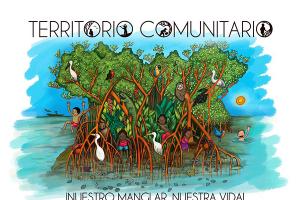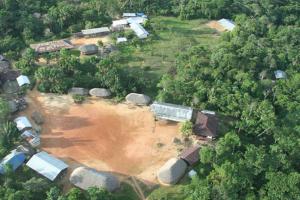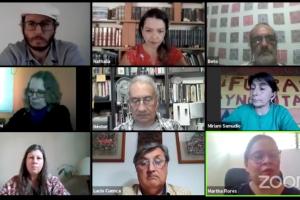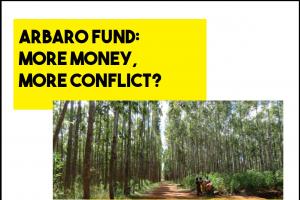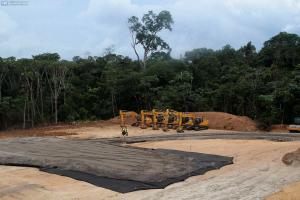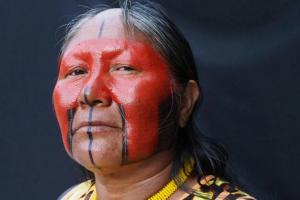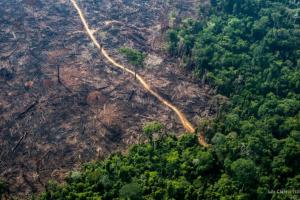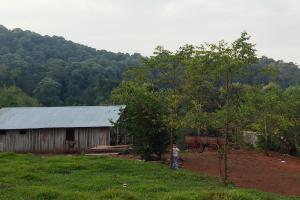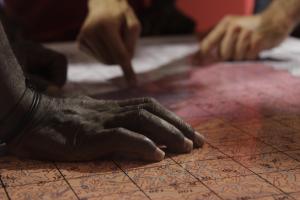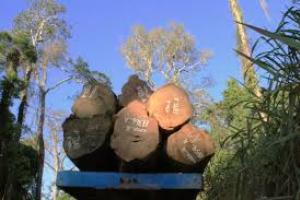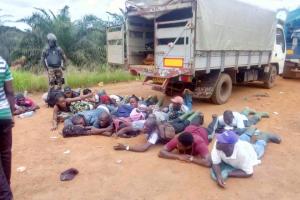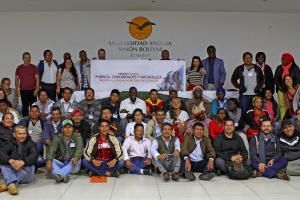Despite the massive clearing of mangroves to make way for shrimp farms, and the oppression of fishing and gathering communities, this industry has access to certifications that not only facilitate its entry into foreign markets; they also conceal a history of violence against the peoples of the mangroves.
Ecuador
Bulletin articles
9 March 2021
Bulletin articles
24 September 2020
Most governments, NGOs and corporations are promoting more Protected Areas and conservation areas around the world. But what does conservation mean? Marlon Santi of the Kichwa people of Sarayaku explains to us what the Amazonian peoples of Ecuador consider to be conservation.
Multimedia
22 September 2020
Conversatorio virtual realizado el 21 de Septiembre de 2020, en conmemoración del Día Internacional de Lucha contra los Monocultivos de Árboles. Organizado por la Red Latinoamericana contra los Monocultivos de Árboles (Recoma).
Publications
6 July 2020
Company plans 75,000 hectare expansion of Industrial Tree Plantations in Seven Countries in the Global South: Sierra Leone, Ghana, Uganda, Ethiopia, Peru, Ecuador and Paraguay. Download the leafelt to know more about the company and why communities should be alert.
Bulletin articles
25 November 2019
Oil is a driving force behind climate change, the globalized unequal trade and the new landscapes of colonization. Yet, oil frontiers have multiplied and economies remain deeply petroleum-dependent, albeit concealed behind a “green” cloak.
Other information
25 November 2019
CUIDANDERAS is a mini-series from the Urgent Action Fund for Latin America and the Caribbean (UAF-LAC). It presents stories of Latin American women defenders who are committed to caring for their territories, healing their bodies, and confronting extractive and racist models. One video shows how the Waorani women - from the province of Orellana, Ecuador - have been fighting to protect their territory in the Amazon and preserve their indigenous culture. For over 60 years, they have been resisting the threats of a petroleum industry that jeopardizes their way of life.
Other information
15 July 2019
The study, “Amazonía en la encrucijada” (“The Amazon at the Crossroads”), by the Amazon Geo-Referenced Socio-Environmental Information Network (RAISG, by its Portuguese acronym) presents an overview of the pressure caused by roads in Brazil, Bolivia, Colombia, Ecuador, Perú and Venezuela. According to the report, of the 136,000 kilometers of roads mapped in the region, at least 26,000 are in protected natural areas and indigenous territories. For example, in the Brazilian Amazon, the report states that most deforestation occurs in the vicinity of roads.
Bulletin articles
14 May 2019
While the destruction of forest territories continues, more pledges, agreements and programs are being implemented in the name of ‘addressing deforestation and climate change’.
Bulletin articles
14 May 2019
The expansion of oil palm and logging in Wimbí is a fact. And in both cases, the protagonist is the same: the land trafficker who allowed the palm company, Energy & Palma, to enter. This new cycle of dispossession threatens the culture and survival of the community.
Other information
22 December 2018
A team of journalists from five Latin American countries investigated how groups of timber traffickers manage to steal and process timber from the Amazon. An article from the newsportal Mongabay exposes how illegally-sourced timber from Peru, Bolivia, Brazil, Ecuador, and Colombia are incorporated into the international market with falsified official documents that are almost never verified.
Bulletin articles
15 November 2018
Certification schemes for tree plantations initially generated many expectations, promising a true transformation. Yet after all these years, we can definitely conclude that what the RSPO and FSC also have in common is that they will not meet those expectations.
Bulletin articles
15 November 2018
In Ecuador, the expansion of industrial oil palm plantations is the main cause of deforestation. A meeting to exchange knowledge, the first of its kind in Ecuador, brought together leaders from oil palm-affected provinces from the three regions of the country.
